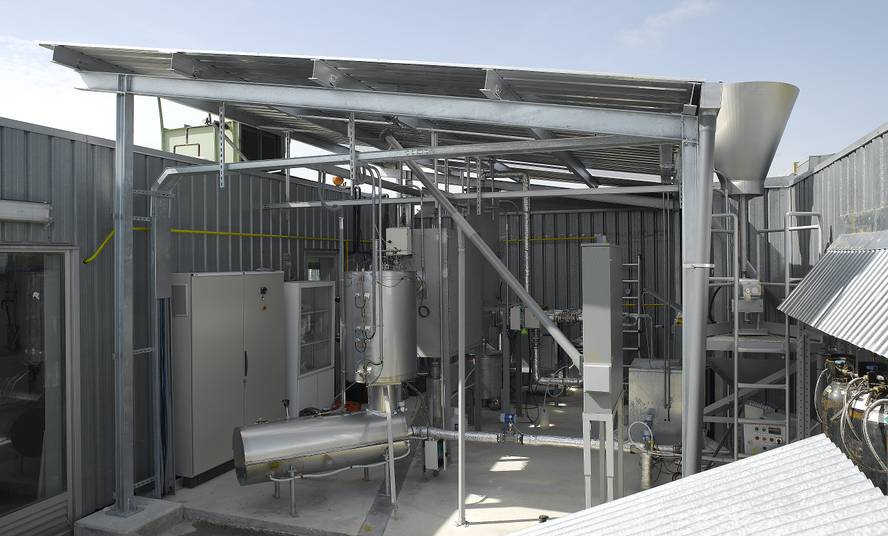Prototype of a sustainable refinery to replace oil with waste
Two lines have been developed, depending on the type of waste, which uses biomass and which treats plastics, tyres and the like. For both, the Professor of Chemical Engineering of the UPV, Martin Olazar, stressed that they have had an essential requirement: not to harm the environment.
Biooil
The first uses agricultural waste or forest biomass. According to Olazar, 70% of the processed mass can become biooil. “This means that if we treat a ton of biomass, about 700 liters of biooil are produced,” he says.
The biooil processing process is based on flash pyrolysis. “It’s very fast pyrolysis. We do it in 20 milliseconds at low temperature (500 degrees),” he said. This low temperature prevents high energy consumption.
Pyrolysis allows the degradation of biomass. Olazar warns that the compounds that are generated must be extracted immediately, “otherwise, they begin to react between them and form components that do not interest us. That’s why pyrolysis is so fast.” Extraction, condensation and biooil production of compounds from biomass degradation.
This biooil can be used as a substitute for oil, “it is biological oil, so to speak.” Olazar has recognized that it is not as good as oil, that it has no oxygen unlike biooil, so it must be treated. Olazar explained that it can be used for the production of any petroleum product: hydrogen, olefins and aromatic, etc.
Olazar has made it clear that the biooil process is much more effective than biodiesel: “The production of biodiesel is a specific plant change, from which only a very small part is used. Of the mass used only 10% is transformed into biodiesel. Instead, we use whole plant waste, obtaining 70%.”
The reactor is patented and together with the research center IK4- Ikerlan have carried out a pilot plant. The next goal is to make a larger installation.
Black coal with tires
Apart from biomass, Olazar has also worked on the design of original or similar products from other waste (plastics, tires…). Especially effective in tyre treatment: “Through flash pyrolysis under certain conditions, we produce very interesting raw materials and black coal.”
Black coal is the main raw material for tyre manufacturing. By treating old tires, the portable refinery transforms 30% of waste into black coal. “Enough to make that percentage profitable,” he says. This solid has numerous applications not only as black coal, but also as adsorbent. The rest is liquid and can have many uses. Among the advantages of this system is Olazar that works continuously. “It is the only reactor of this kind. We have patented and intend to build a middle unit,” he added.






